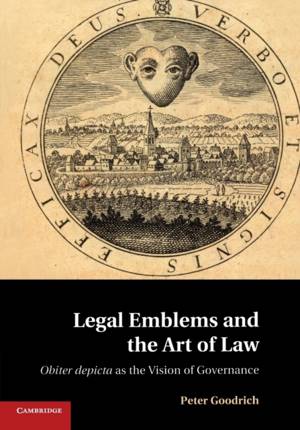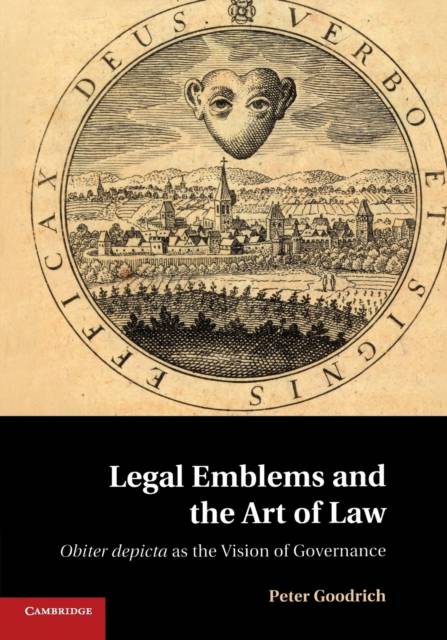
- Afhalen na 1 uur in een winkel met voorraad
- Gratis thuislevering in België vanaf € 30
- Ruim aanbod met 7 miljoen producten
- Afhalen na 1 uur in een winkel met voorraad
- Gratis thuislevering in België vanaf € 30
- Ruim aanbod met 7 miljoen producten
Zoeken
Legal Emblems and the Art of Law
Obiter Depicta as the Vision of Governance
Peter Goodrich
Paperback | Engels
€ 64,95
+ 129 punten
Omschrijving
The history of the legal emblem has not been written. A seemingly fortuitous invention of the humanist lawyer Andrea Alciato in 1531, the emblem book is an extraordinary pictorial turn in the early history of publishing and in the emergence of modern law. The preponderance of juridical and normative themes, of images of rule and infraction, of obedience and error in the emblem books is critical to their purpose and interest. It is no accident that the history of this highly successful scholarly genre is dominated in authorship and content by lawyers. This book is the history of the emblem tradition as a juridical genre, along with the concept of, and training in obiter depicta, in things seen along the way to judgment. It argues that these picture books of law depict norms and abuses in classically derived forms that become the visual standards of governance. Despite the plethora of vivid figures and virtual symbols that define and transmit law, contemporary lawyers are not trained in the critical apprehension of the visible. This book is the first to reconstruct the history of the emblem tradition so as to evidence the extent to which a gallery of images of law already exists and structures how the public realm is displayed, made present, and viewed.
Specificaties
Betrokkenen
- Auteur(s):
- Uitgeverij:
Inhoud
- Aantal bladzijden:
- 307
- Taal:
- Engels
Eigenschappen
- Productcode (EAN):
- 9781107546103
- Verschijningsdatum:
- 11/06/2015
- Uitvoering:
- Paperback
- Formaat:
- Trade paperback (VS)
- Afmetingen:
- 175 mm x 251 mm
- Gewicht:
- 793 g

Alleen bij Standaard Boekhandel
+ 129 punten op je klantenkaart van Standaard Boekhandel
Beoordelingen
We publiceren alleen reviews die voldoen aan de voorwaarden voor reviews. Bekijk onze voorwaarden voor reviews.








